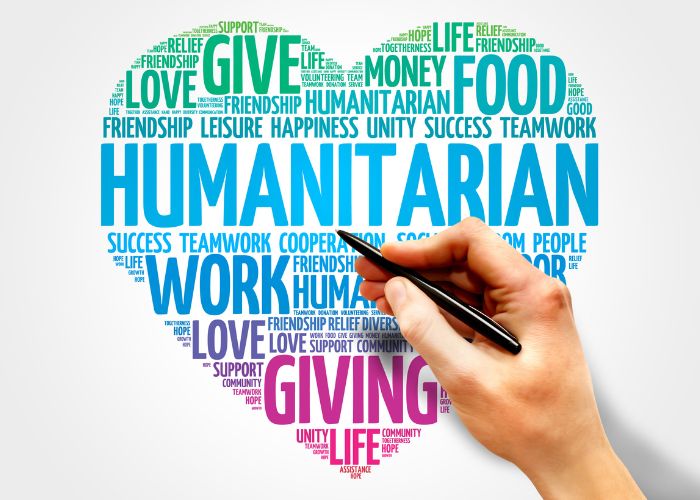IMANA NEWS
Why We Need A World Humanitarian Day More Than Ever
18 August 2025
 The bombing of a United Nations headquarters in 2003 put the spotlight on the plight of humanitarians around the world. The attack killed 22 workers, as well as the UN High Commissioner for Human Rights at the time, Sergio Vieira de Mello.
The bombing of a United Nations headquarters in 2003 put the spotlight on the plight of humanitarians around the world. The attack killed 22 workers, as well as the UN High Commissioner for Human Rights at the time, Sergio Vieira de Mello.
To mark the occasion and remember its fallen aides, the United Nations passed a resolution: it decreed August 19 as World Humanitarian Day. Over 20 years have passed since, but the day is no less relevant than it was then.
As the Islamic Medical Association of North America (IMANA) has seen firsthand, the impact of violent conflicts on civilians is devastating. On World Humanitarian Day, we urge you to learn more about the invisible force working tirelessly to mend the world.
Why We Need a World Humanitarian Day
The last decade has been especially hard for humanitarian causes.
Major crises have been reported from Sudan to Syria, Afghanistan to the Congo. The conflicts in Ukraine and Yemen continue unabated, while the situation in Gaza has become the biggest challenge aid workers have ever had to deal with.
That’s why on August 19, it’s important to honor those killed or maimed on duty.
World Humanitarian Day is a reminder of sacrifices these individuals have made on the frontlines, as well as a day to spread awareness about their efforts.
Humanitarians have put their lives at risk to give a voice to those who lack a platform. They deliver food and medicine, and spread education and awareness.
As armed conflicts rage and attacks on civilians intensify, however, these tasks are growing more overwhelming. The United Nations suggests there’s over 300 million people across the world in dire need of humanitarian assistance.
What Does it Mean to be a Humanitarian?
Humanitarians come from various disciplines. They could be nurses, social workers, economists, or otherwise. They could also come from the local community, advocacy teams, or non-profits like IMANA.
One factor that unites these groups is the vision to support those in dire need — ensuring every human has access to food, shelter, and water. Despite their diverse backgrounds, all humanitarians also live by a strict code. Several international entities have outlined seven principles:
- Humanity: Humanitarians acknowledge that suffering is universal, and must never show indifference to the plight of any group.
- Impartiality: Aid must be distributed without favour or discrimination on the basis of nationality, race, religion, class, or more.
- Neutrality: Humanitarians must avoid taking sides in extreme political conversations, and remain neutral in speech and action.
- Independence: Decisions must be made free from outside influence, even when working with governments.
- Voluntary service: Humanitarian causes should be driven by compassion, not for personal gain.
- Unity: The different entities must work together to meet needs. Regardless of their background.
- Universality: Different entities worldwide must support each other and act as a single humanitarian network.
These principles guide humanitarianism and ensure there is no breakdown in trust. They’re also a reminder of just how much goes on behind the scenes.
What Challenges Do Humanitarians Face in 2025?
Even though social media has amplified their stories, humanitarian workers are no safer today than when the bomb struck in 2003. In fact, 2023 was first declared the deadliest year on record for aid staff. Then the same was said about 2024 — and the way things are progressing, 2025 will be even worse.
In an urgent appeal, the UN Secretary General Antonio Guterres has decried what he calls the brutal violence targeting humanitarian workers.
He also pointed out three reasons for the sustained attacks:
- Disinformation campaigns are spreading lies
- International humanitarian law is being ignored
- A climate of impunity is being created
The numbers paint a similarly grim picture. A record number of humanitarian workers were killed in 2024 — 377 across 20 counties. And that’s just the fatalities. Several hundreds more have been injured, kidnapped, or detained.
But as Joyce Msuya, Assistant Secretary General for Humanitarian Affairs, put it: “Being shot at should not be part of the job.”
Urgent Appeals From Gaza
The war in Gaza is the biggest contributor to the global humanitarian crisis. The region is now on the brink of famine, with more than 20% of the population facing starvation. The death toll has crossed 50,000, and is only rising by the day.
Attacks on humanitarian workers are also frequent.
A UN body that was set up specifically to aid Palestinians has been repeatedly targeted. The UN chief said one in 50 members of the UNRWA organization has been killed in the conflict — the highest staff death toll in the body’s history.
For IMANA, the numbers hit close to home. Since 2009, members of our organization have been hard at work coordinating healthcare services for Palestinian people. Our volunteers administer life saving treatments, drop off critical medication, and distribute tons of food to families. Learn more about our Aid Gaza program here.
How You Can Make a Difference
This World Humanitarian Day, you don’t have to stand on the frontlines to make a difference. The global community needs whatever help it can get to achieve its outlined goals: end wars, poverty, and hunger.
The best way to contribute is to raise awareness about these efforts. Read up about global conflicts, share stories of humanitarianism, and volunteer your services where fit. Organizations like IMANA wouldn’t survive without your support, however small.